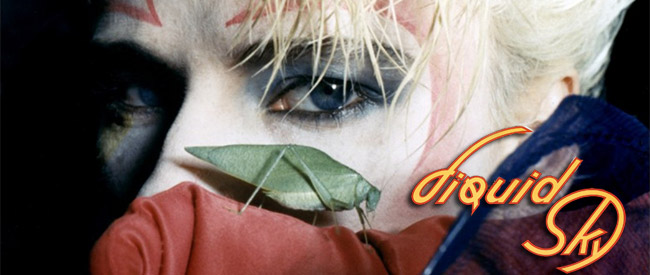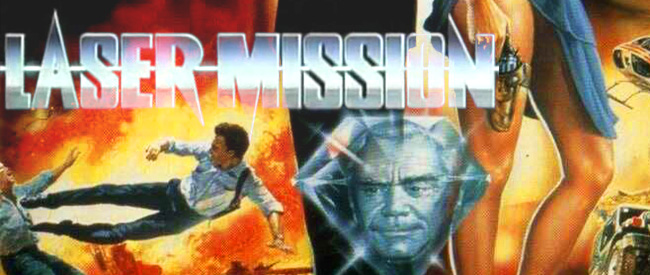 LASER MISSION
LASER MISSION
Dir. BJ Davis, 1989
USA, 84 min.
SATURDAY, FEBRUARY 1 – MIDNIGHT
On Saturday February 1st at MIDNIGHT, we are celebrating what would have been the 49th birthday of BRANDON LEE. Who is that, you ask? You’re reading this on a computer, right?
Before he was THE CROW (but definitely after his LEGACY OF RAGE), Lee was Michael Gold – a cocky, self-righteous asshole who upends his fully free agent status and chooses to accept a LASER MISSION on offer from the CIA (but, like, eschewing CASH MONEY USA in favor of action man SWAGGER ethics). There’s something about the WORLD’S LARGEST DIAMOND gone missing, along with some LASER expert (expertly lazied by ERNEST BORGNINE) being held in Angola (or somewhere) by the KGB (or Cuban military or some Austrian madman or something). All this adds up to is TROUBLE and the potential END of the WESTERN WORLD as we KNOW IT. When not donning gross disguises to fool bumbling cartoon humans, Gold is totes in NEGGING WAR III with terminal television episoder DEBI MONAHAN (who may or may not be portraying a daughter or a double agent or whatever).
Even if you HAVE seen LASER MISSION, you won’t want to MISS our special WIDESCREEN presentation, with all the EXPLOSIVE action (and sometimes admittedly great wide tracking shots) as NEVER BEFORE SEEN in domestic US BARGAIN BINS and FIFTY-FILM DVD collections. Unfortunately we weren’t able to get our hands on the legendary FULLY UNCUT version on GERMAN VHS, but if you come by SATURDAY FEBRUARY 1ST, maybe we’ll SHOW you some STILLS AND talk you THROUGH THE cuts.
If you HAVEN’T seen LASER MISSION, then grab your favorite brand of adult diapers and head the hell over here. Sounds appealing? Then make like an ORANGE and GET JUICED.
ARTIFACT VIDEO CLUB PRESENTS
PIZZA
Karthik Subbaraj, 2012
India, 127 min.
In Tamil with poor yet remarkably effective English subtitles
Artifact Video Club is conceptually premised upon screening international bootlegs of popular cinema. See end of description for notes on quality.
FRIDAY, FEBRUARY 7 – MIDNIGHT
What is two hours long and kicks ass? PIZZA.
You have never seen a movie like PIZZA. This charming and offbeat Kollywood romantic horror comedy thriller is sort of like a mix between Edgar Wright, Luis Buñuel, Henri George Clouzot, Nora Ephron, and pizza. It’s about a guy who delivers pizza and is compelled to marry his live-in girlfriend, an aspiring horror novelist, following an unexpected pregnancy. But after the protagonist suddenly finds himself participating in the exorcism of his boss’s daughter, really weird stuff — like, weirder than randomly participating in the exorcism of his boss’s daughter — starts to happen.. Forty minutes in, PIZZA ruptures into an extended, hallucinatory, and terrifying horror film sonata before taking another left turn or two through mystery and thriller genres and delivering a hot, satisfying conclusion. It leaves one feeling really, stupidly great. Movies really don’t get as sweet, terrifying, strange, smart, and funny as PIZZA.
Audiences agreed. PIZZA was a huge critical and commercial success in Tamil cinemas and has already been remade in Kannada, Bengali and Hindi, dubbed into Telugu, and followed up with a generally unrelated sequel, PIZZA II: VILLA, in which the title food, pizza, appears to play an even more tangential or perhaps even non-existent role.
Anyway, as with life itself: Kollywood cinema simply does not get better than PIZZA.
This is the second screening of Spectacle’s unauthorized contemporary international pop cinema bootleg midnight screening series ARTIFACT VIDEO CLUB. Nodding to our international colleagues running Ghana movie clubs and VCD videotheques, AVC is an intrepid exploration of vernacular cinema from around the globe. Intentionally half-baked in concept and execution, AVC dwells in the ether between armchair anthropology, misapplied critical theory, and superfried midnight madness.
Please be advised that PIZZA will be served with piracy-prevention watermarks and superimposed anti-smoking warnings that appear every time anyone smokes a cigarette. Which is a lot, ‘cause delivering pizzas is stressful!!!
SAMURAI REINCARNATION (Makai tenshô)
Dir. Kinji Fukasaku, 1981
Japan, 121 min.
In Japanese with English subtitles
SATURDAY, FEBRUARY 8 – MIDNIGHT
“I don’t want a sword that can only kill human beings. I want to kill devils.”
Director Kinji Fukasaku (Battle Royale, Graveyard of Honor) teams up with his old pal Sonny Chiba (The Street Fighter series) facing off against Kenji Sawada (The Happiness of the Katakuris) for all the supernatural swordfighting you can handle in Samurai Reincarnation. After the defeat and massacre of his troops, a general renounces God and sells his soul for the ability to bring the dead back to life, building an undead army. Meanwhile, swordsman Yagyu Jubei seeks an evil sword able not only to kill people but demons as well. From here, there’s swordfights aplenty (no surprise this film was the inspiration for the video game Samurai Showdown), crazy effects, jaw-dropping award-winning art direction and more of everything — those expecting a staid Edo-era period piece might not like it, but any cold-as-ice Chiba fan will be delighted. There’s even an unhealthy dollop of nudity and Roman porno-style sexual depravity for the midnight trenchcoat crew! Keep an eye out for a small role by Tomisaburo Wakayama (Lone Wolf & Cub)!
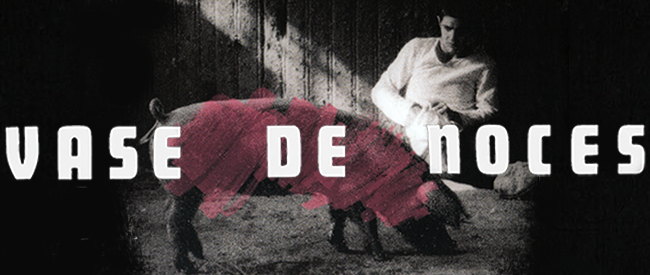 VASE DE NOCES
VASE DE NOCES
(aka Wedding Trough, aka The Pig Fucking Movie)
Dir. Thierry Zéno, 1974
Belgium, 79 min.
Special thanks to Thierry Zéno
SATURDAY, FEBRUARY 15TH – MIDNIGHT
40TH ANNIVERSARY! • FIRST US SCREENING IN 20+ YEARS!
[TRIGGER WARNING: Contains simulated scenes of animal cruelty, animal killings, bestiality, defecation, coprophagia, and unsimulated scenes of vomiting and live animal birth.]
A nightmarish, haunting dirge with an often-maligned reputation, VASE DE NCOES is a notorious 1974 film concerning a lone farmer’s sexual relations with his favorite sow. And while the subject matter is shocking, it’s certainly not in the name of exploitation. In fact, there’s a fair amount going on for a film infamously bestowed the US title of ‘The Pig Fucking Movie’…
Set in a post-apocalypse rural farm, the unnamed man tends to his daily activities, before eventually fixing his eye on a large sqealing pig. A few fantasies later, the farmer finds himself alone with his love interest and they copulate, with the pig eventually giving birth to three piglets. When he takes an invested interest in raising them, the piglets try to rejoin their mother, setting off a chain of events that push the film into darker and more phantasmagorical territories…
Completely devoid of dialogue, fermented in Year Zero bleakness, shot in monochromatic black-and white and featuring a raucous sound design of Gregorian chants, early electronic synthesizers, and animal wailings of all kinds, the film feels beamed from another plane of existence. Indeed, its comparisons to Eraserhead are justified in the technical and aesthetics departments, though interestingly it was released two years prior to David Lynch’s debut.
The last exit on the fringe film highway, VASE DE NOCES is a film more whispered about than actually seen, chiefly due to its extremely limited screenings since its initial festival run (which included Cannes and New Directors/New Films, amongst others). Finally, in 2009, German distributor Camera Obscura granted the film its first-ever official release and a new restoration, though the film is still not commercially available in the US. Working with director Thierry Zéno, Spectacle is proud to present the new restored digital version of this legendary arthouse oddity on the occasion of its 40th anniversary.
“Both obscene and spiritual… not for the squeamish.” -MoMA
“A journey to the end of the night… a mystical allegory… continuously fascinating, continuously disquieting.” -Film Comment
“This bizarre, hypnotic, humorless tale of a demented farm boy and his four-legged barnyard sweetheart may be the ultimate in solipsistic filmmaking. Whatever one’s reaction to it… it cannot be passed of as a mere piece of cinematic sensationalism… a combination of grand-guignol, theatre-of-cruelty and demonic mysticism…” -Buck Henry
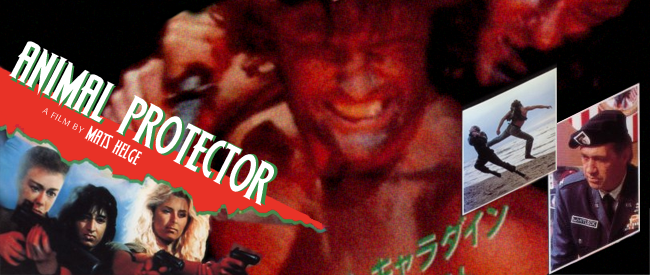
ANIMAL PROTECTOR
Dir. Mats Helge, 1988
Sweden/USA, 96 min.
FRIDAY, FEBRUARY 21 – MIDNIGHT
Like Spectacle after-dark idols Godfrey Ho (HARD BASTARD) and Arizal (AMERICAN HUNTER), Swedish filmmaker Mats Helge singlehandedly helmed dozens of cornea-crushing Z-grade action pictures in the 70s and 80s, only a fistful of which are accounted for today. Perhaps second-famous after his much-whispered-about THE NINJA MISSION, ANIMAL PROTECTOR sees Helge standing at the cynosure of 80s late-night movie financing. Shooting in and around a Scottish castle, Helge’s camera betrays a magnetic pull towards David Carradine’s demented hardass Colonel Whitlock. Lording over an operation guarded by special ops, infantrymen and non-American Green Berets, Whitlock is no mere animal-experimenting megavillain but a damn Reagan-era Doctor Moreau.
For a time, Helge’s bleak vision is like watching a powerful Bond villain with no comeuppance anywhere near to the horizon. But justice does indeed touch down at Whitlock’s doorsteeple in the hands of C.I.A. agent Santino (A.R. Hellquist), plus a bevy of uzi-gun toting blondes in shredded jeans and camo. Impassioned to free Whitlock’s mammalian victims (if without an escape plan beyond the island), the crew chews up scores of foot soldiers and flunkies before running smack into its greatest obstacle: Whitlock. Carradine the order-barker suddenly morphs into Carradine the wild man of kung fu, exploding out of the castle and onto the beach. There, Santino’s mission vanishes into the sunrise in a one-on-one deathmatch that can only define both men as animal.
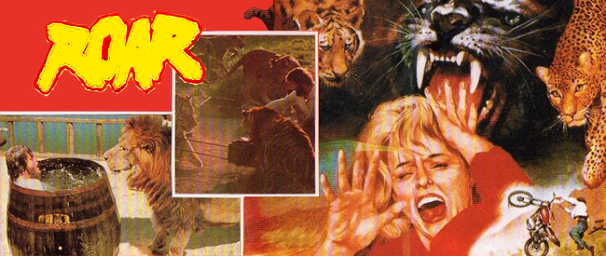 ROAR
ROAR
Dir. Noel Marshall, 1981
USA, 102 min.
SATURDAY, FEBRUARY 22 – MIDNIGHT
Made over the course of 10 years and with a reported 70 crew injuries – most notably a tiger mauling that resulted in what was perhaps Melanie Griffith’s first (and certainly not last) plastic surgery — ROAR emerges in hindsight as one of history’s most expensive home movies, a Hollywood albatross never released theatrically in the US.
Tippi Hedrin (THE BIRDS) and husband/producer Noel Marshall were at the time noted animal rights activists with a menagerie of cheetahs and tigers kept in waiting at their Acton, California ranch, “The Shambala Preserve”. They doubled the Golden State location as exotic Africa and cast themselves as an animal researcher and estranged wife, respectively, who reconnect against a backdrop of escaped tigers and evil game hunters, pouring $17 million dollars into a still-unrecovered black hole in the process.
But of course none of that counts in a film where Tippi Hedrin gets flipped upside down by an elephant en route to a would-be heartwarmer of an ending that lands closer to perverse surrealism. The notorious production had trouble corralling its fauna, and it shows all over: everything and everyone is out of control here. Perhaps most important is that however dunderheaded it may be, ROAR is exactly what it purports to be: a naïve safari picture in the tradition of Trader Horn and Hatari! whose raw encounter with the animal species triumphs over narrative, ethical, and – yes, hygienic – concerns.
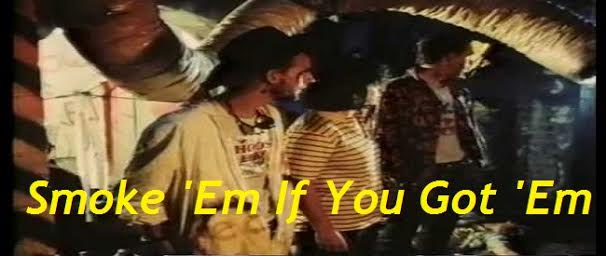 NUKING OZ AT MIDNIGHT: SMOKE ‘EM IF YOU GOT ‘EM & OTHER SICK HUMOR VISIONS OF THE APOCALYPSE IN AUSTRALIA
NUKING OZ AT MIDNIGHT: SMOKE ‘EM IF YOU GOT ‘EM & OTHER SICK HUMOR VISIONS OF THE APOCALYPSE IN AUSTRALIA
SMOKE ‘EM IF YOU GOT ‘EM
Dir. Ray Boseley, 1988
Australia, 48 min.
FRIDAY, FEBRUARY 28 – MIDNIGHT
With:
DUCKED & COVERED: A SURVIVAL GUIDE TO THE POST APOLCALYPSE
Dir. Nathaniel Lindsay, 2009
Australia, 8:26 min.
I LOVE SARAH JANE
Dir. Spencer Susser, 2007
Australia, 14 min.
SPIDER
Dir. Nash Edgerton, 2007
Australia, 9 min.
From ON THE BEACH to THE ROAD WARROR to TOMORROW, WHEN THE WAR BEGAN, Australia has figured prominently in cinematic depictions of the events surrounding total war, including the use of thermonuclear weapons.
Maybe it’s something to do with the “Convict Stain,” but Oz has also found itself to be ground zero for some of the more twisted takes on atomic destructions (if not physical, then spiritual). Not quite bummers from Down Under, these shorts view The End of Civilization, whether overtly or not, with a bleak, black humor—this evening, the Spectacle presents two atomic war perspectives, one zombie apocalypse, and one relationship apocalypse, because sometimes a breakup really feels like the end of the world.
“So what are we going to do? Take it easy and conserve our strength, or are we gonna run ourselves ragged?!?”, demands party-thrower Jon (Rob Howard) in his well-stocked bomb shelter in Ray Boseley’s marvelous SMOKE ‘EM IF YOU GOT ‘EM (at 48 minutes, a sort of cinematic novella). The bombs have dropped, the land is scorched, and the heavy radiation is penetrating the bunker, dooming everyone.
At the shelter, all who survived are invited to knock back a few, chow down, and puff a bong. “This is a casual affair: Come as you are, smoke ’em if ya got ’em,” he says.
Released and highly praised by Chris Gore’s Film Threat in 1988, SMOKE ‘EM IF YOU GOT ‘EM was promptly lost and forgotten. Snappy and stylish, wearing its Aussie Punk Rock heritage on its sleeve (the singer in the film’s band has that Birthday Party look about him), it’s the best soiree you could ever be invited to—lots of good food, great booze and drugs, wanton sex—it’s just too bad the End of the World is happening.
Made in the Reagan-Bush Era when nuclear war was expected at any moment—Whew! Sure glad those days are over — SMOKE ‘EM IF YOU GOT ‘EM is infused with pitch-black, yet often dry or absurdist humor, which, as Slow Radiation Death creeps upon the characters, becomes philosophical, bittersweet and even sentimental sometimes.
Joining SMOKE ‘EM IF YOU GOT ‘EM are three additional short films, all of which are sick, sick, sick.
Nash Edgerton (director of 2008’s acclaimed THE SQUARE) helms the first short of the program: SPIDER (2007), where a hapless, immature prankster might as well be dropping an atomic weapon into his love life.
The Zombie Apocalypse makes its way Down Under in Spencer Susser’s I LOVE SARAH JANE (2007), but not even that can stop the serious crush young Jimbo has on classmate Sarah Jane (current “It Girl” Mia Wasikowska in a very early role) in this DAWN OF THE DEAD/LORD OF THE FLIES mash-up.
Early-1980s public safety films are expertly spoofed in Nathaniel Lindsay’s animated DUCKED & COVERED: A SURVIVAL GUIDE TO THE POST APOCALYPSE (2009) in this evening’s penultimate short. Now you will know what to do when the killer robots show up, or if you have too many skulls lying around.

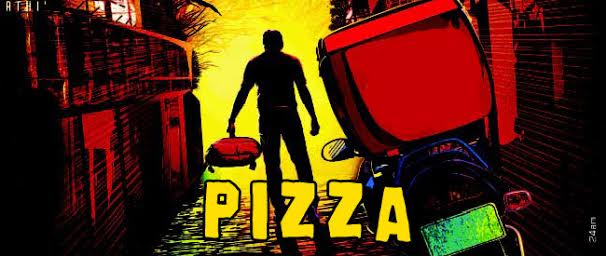
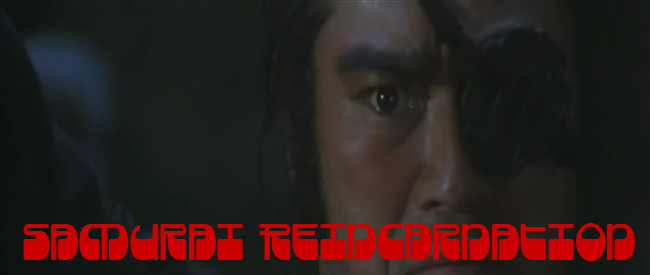
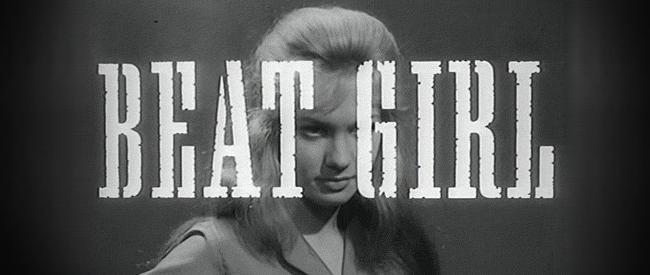
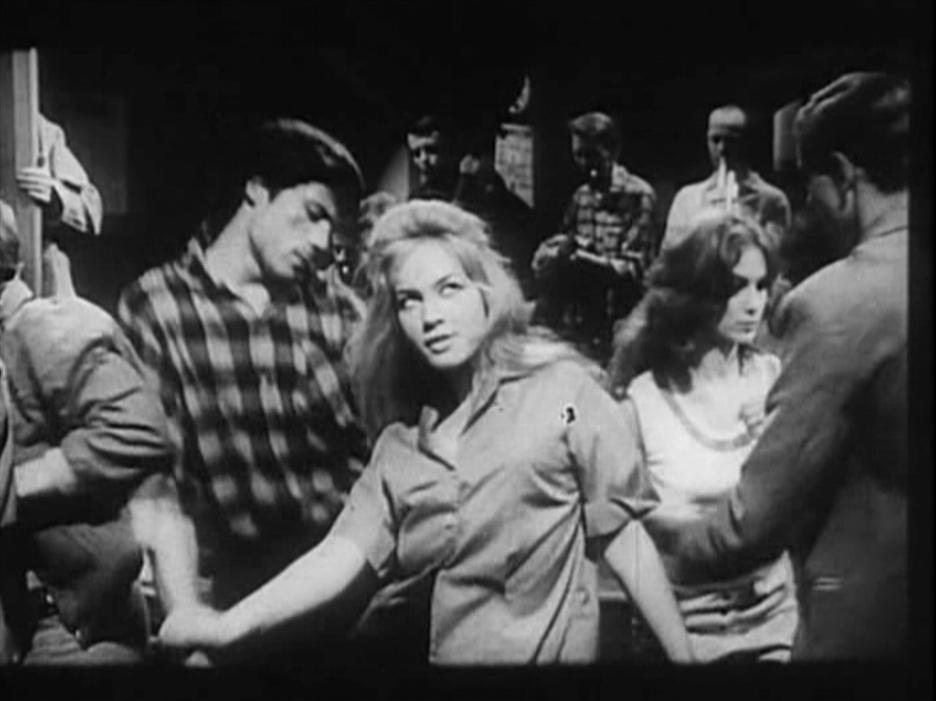
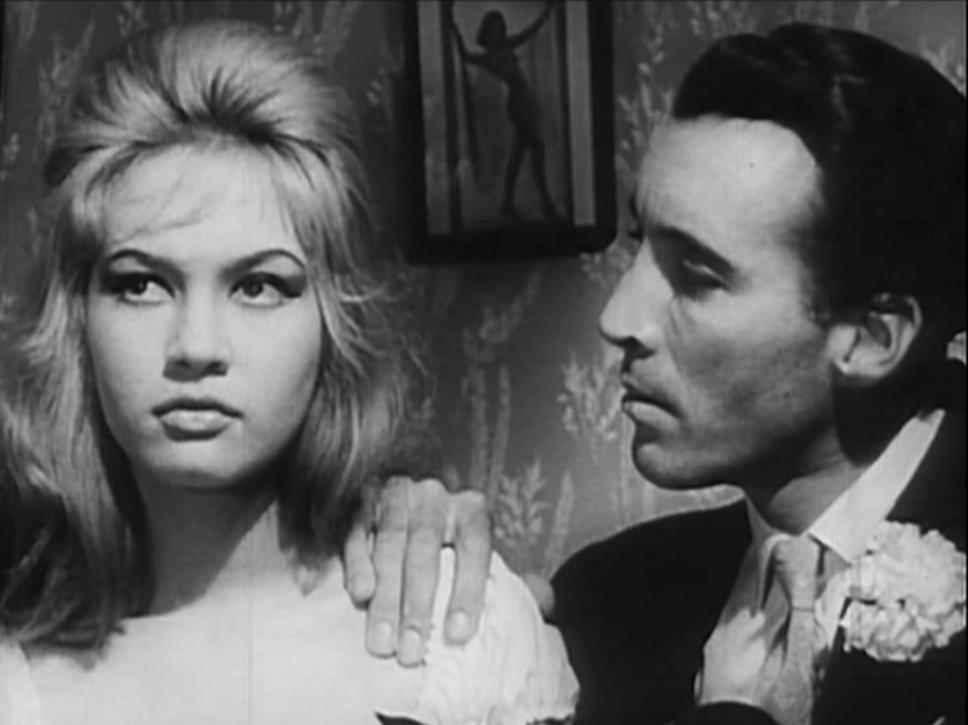
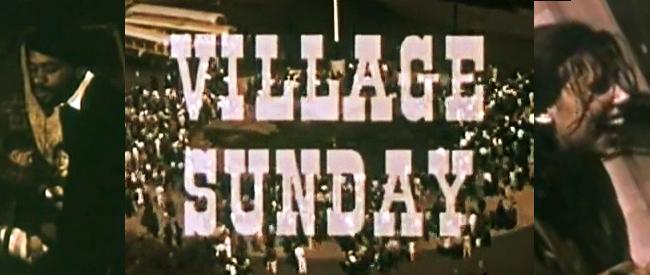
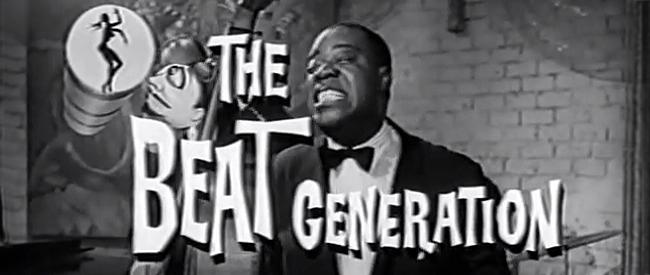
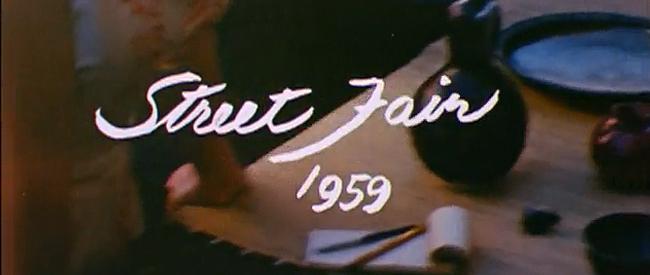
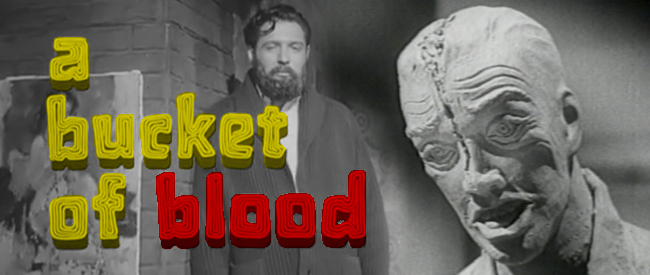
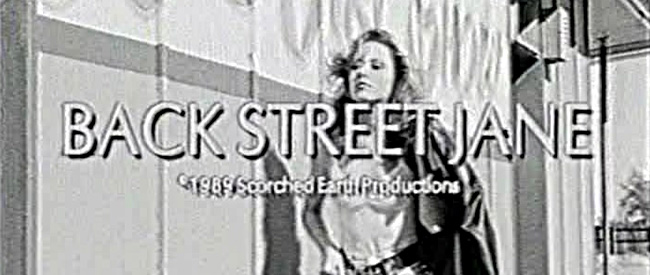 BACK STREET JANE
BACK STREET JANE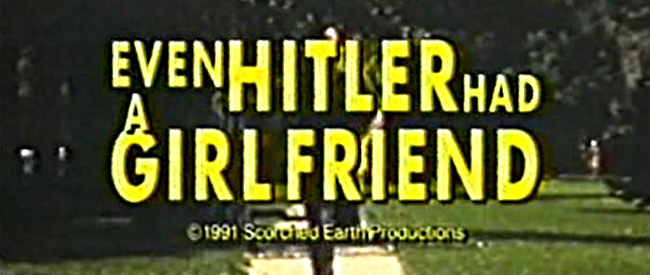 EVEN HITLER HAD A GIRLFRIEND
EVEN HITLER HAD A GIRLFRIEND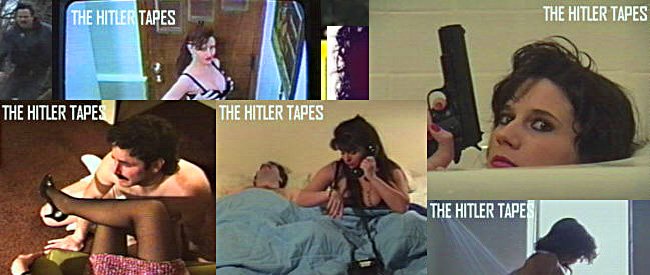 THE HITLER TAPES
THE HITLER TAPES HIGHWAY AMAZON
HIGHWAY AMAZON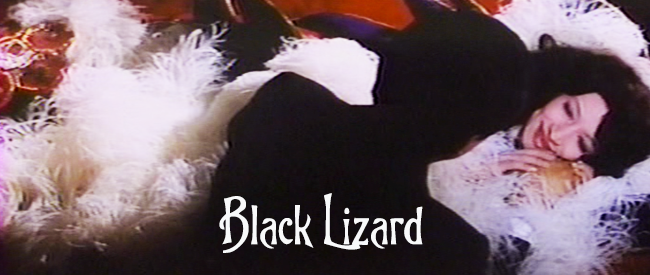 BLACK LIZARD (KUROTOKAGE) 黒蜥蜴
BLACK LIZARD (KUROTOKAGE) 黒蜥蜴 JUNGLE LOVE
JUNGLE LOVE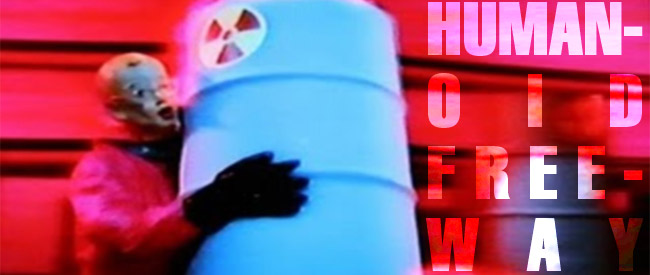
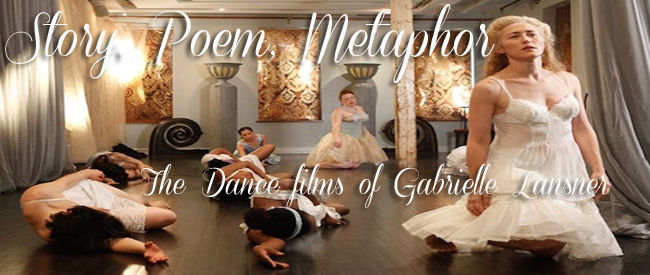

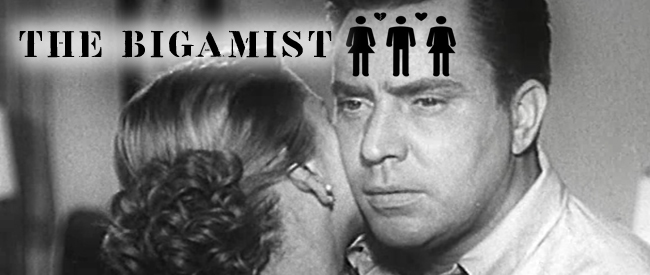 THE BIGAMIST
THE BIGAMIST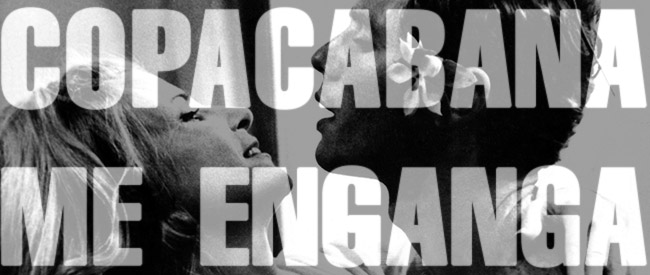 COPACABANA ME ENGANA
COPACABANA ME ENGANA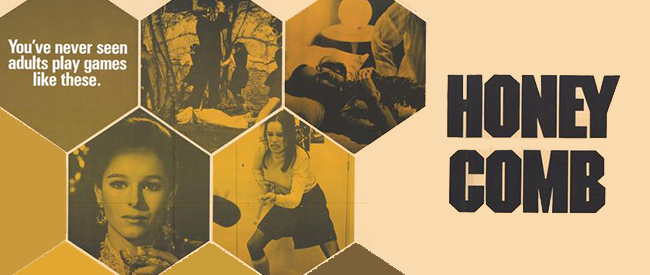
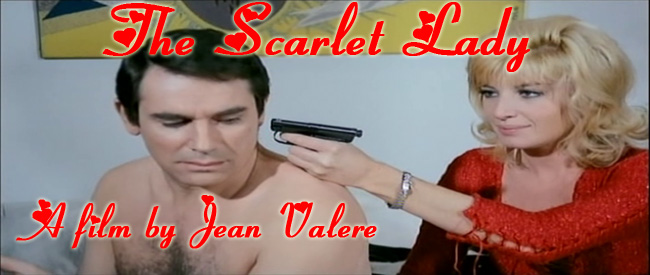 THE SCARLET LADY
THE SCARLET LADY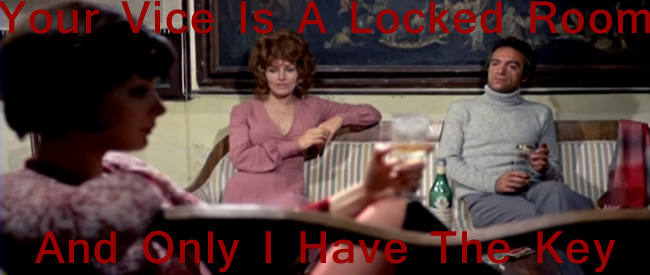 YOUR VICE IS A LOCKED ROOM AND ONLY I HAVE THE KEY
YOUR VICE IS A LOCKED ROOM AND ONLY I HAVE THE KEY 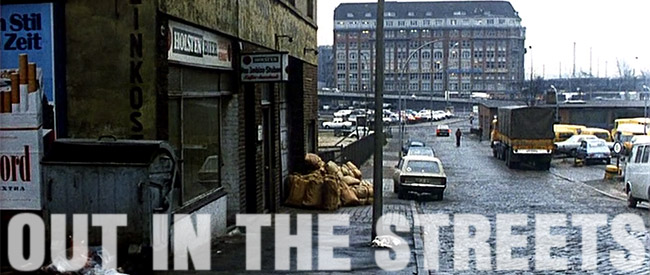
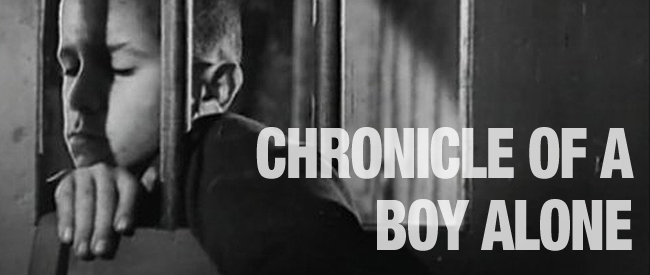
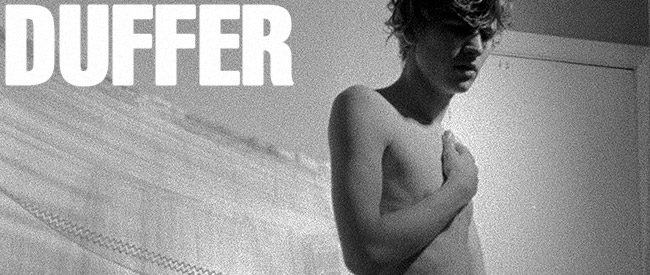 DUFFER
DUFFER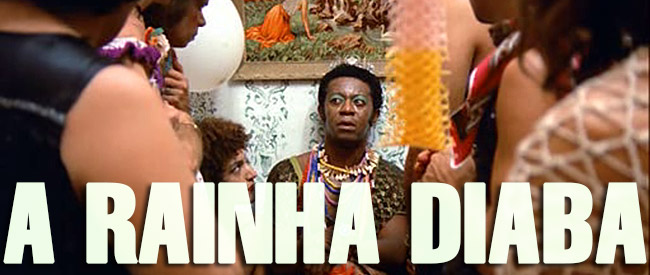 A RAINHA DIABA
A RAINHA DIABA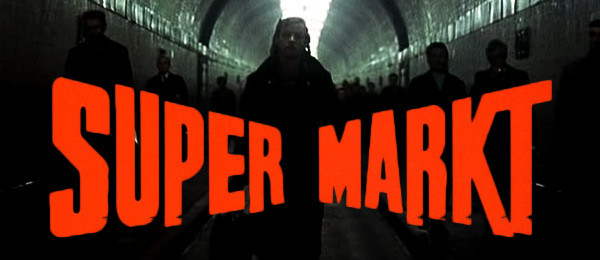 SUPERMARKT
SUPERMARKT
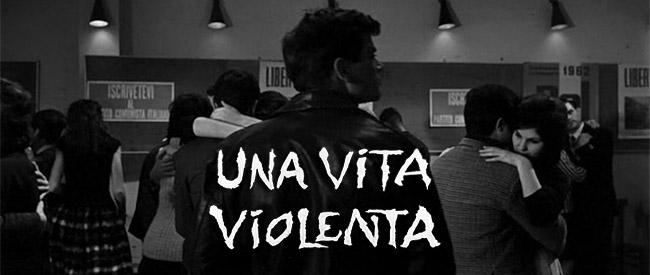 UNA VITA VIOLENTA
UNA VITA VIOLENTA